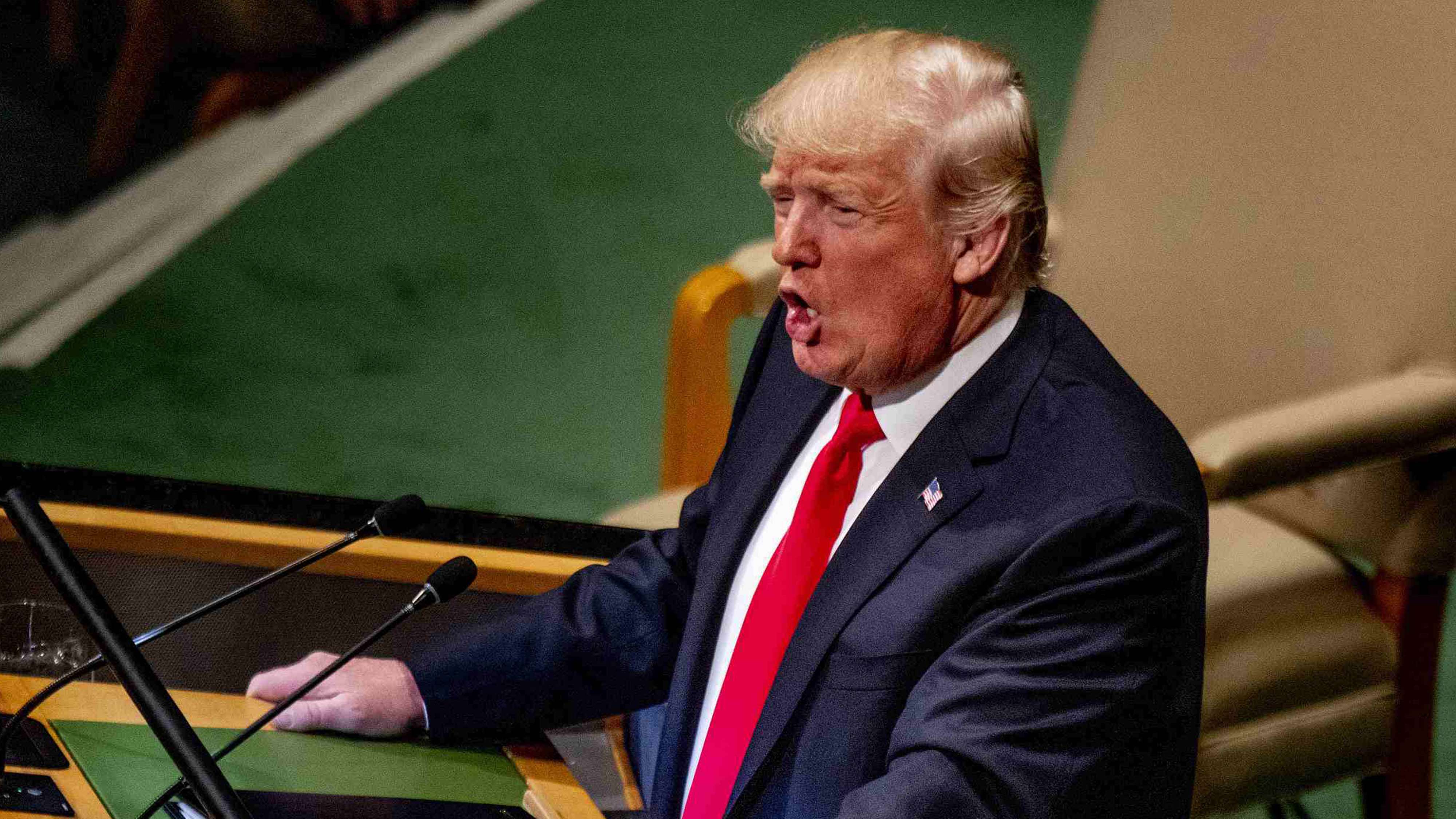
Opinions
18:57, 27-Sep-2018
The irony behind Trump's talk on sovereignty
Updated
18:36, 30-Sep-2018
CGTN's The Point
01:48

"The whole message is that the US may have its sovereignty, but other countries may not," said Zhao Hai, a research fellow at the Chinese Academy of Social Sciences.
US President Donald Trump addressed the 73rd session of the United Nations General Assembly on September 25. In his speech, Trump said, “I honor the right of every nation in this room to pursue its own customs, beliefs and traditions. The US will not tell you how to live or work or worship ... we only ask that you honor our sovereignty in return.”
Zhao pointed out the inconsistency and irony in Trump's speech when considering America's behavior around the world, including economic sanctions on various countries and military operations in the Middle East.
"If you listen to President Trump giving his speech, there are really two parallel messages. On the one hand, Trump emphasized sovereignty, on the US keeping its independence. But on the other hand, he is speaking about interfering in other countries' domestic politics, which is very much disrespectful of the sovereignty of other countries," said Zhao.
The following day after Trump addressed the United Nations; he accused China of attempting to interfere in US midterm elections during his remarks at the UN Security Council meeting. But he offered no evidence to back up his claim.
Wang Yi, China's state councilor and minister for foreign affairs, responded to Trump's remarks at the end of his own statement to the Security Council. Wang said, "we did not, do not, and will not interfere in the internal affairs of any country, and we don't accept any groundless accusations made against China." He also called on other countries to follow the principles of the Charter of the United Nations, which forbids interference in any country's internal affairs.
(If you want to contribute and have specific expertise, please contact us at opinions@cgtn.com)

SITEMAP
Copyright © 2018 CGTN. Beijing ICP prepared NO.16065310-3
Copyright © 2018 CGTN. Beijing ICP prepared NO.16065310-3